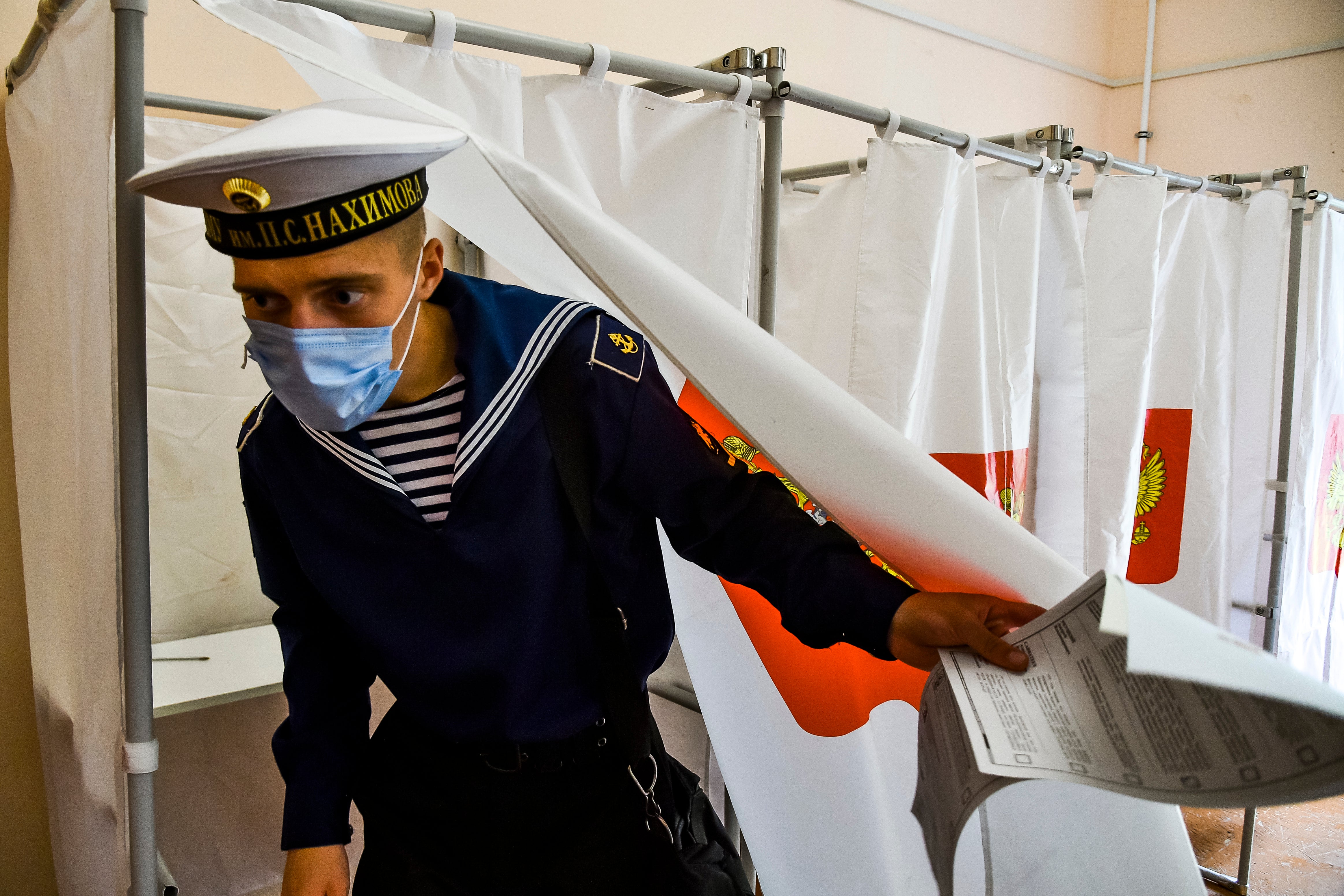Russia election: Exit polls suggest majority for pro-Putin United Russia in controversial election
Strong gains projected for Communists, who finish in second place, but impact of voting irregularity is still unclear

Russia’s ruling party, which supports President Vladimir Putin, has won a majority in parliamentary elections, exit polls suggest.
But the voting process may have brought a few too many dissenting voices for comfort – and it is still too early to see how images of vote fraud being circulated online may play out.
The polls say between four and five parties will make it into parliament. Ruling party United Russia is projected to have 45.2 per cent of the vote, with the Communist Party a strong second on 21 per cent.
The Liberal Democratic Party of Russia – an inappropriately-named nationalistic front – comes third on 8.7 per cent. A Fair Russia (7.9 per cent) and possibly New People (4.7 per cent) make up the tail.
All are considered entirely or significantly controlled by the Kremlin, but many surprises could yet come in the form of first past the post constituencies, which make up half the national parliament.
The elections saw Russians in 85 federal districts vote for 450 state duma deputies, 12 governors and 39 regional parliaments.
In the end, the projected result for a ruling party that was polling below 30 per cent is a satisfactory figure for the Kremlin. The way it got there leaves many questions.
Even before voting, the Kremlin embarked on a massive campaign of repression of alternative opinion – crippling media and NGOs, removing candidates connected to poisoned and jailed opponent Alexei Navalny, and eventually persuading US tech giants to block tactical voting resources created by him.
The OSCE declined to send monitors after being told it could only send a limited number owing to the Covid-19 pandemic. Local monitoring organisation Golos was meanwhile declared a foreign agent, with its rights to receive feeds from polling stations removed. That reduced the monitor’s ability to compare real and claimed turnout figures.
But the NGO nonetheless managed to staff a skeleton call centre to its traditional “map of electoral violations”.
Just before the close of voting, that map was showing over 4,200 reports, and 168 serious accounts of fraud. New innovations like e-voting – “almost impossible to monitor” – and two additional days of early voting have also opened the process to fraud, say critics.
The election will likely be remembered for two cases in particular, both recorded on camera. The first, from Bryansk region, shows two female election officials struggling to stuff ballots into the urns, before laughing at the absurdity of their situation.
The second, from Kemerovo, a region that always returns huge numbers, shows officials attempting to cover the urn, but not quite covering an arm full of ballots that magically appears from behind a flag.
Join our commenting forum
Join thought-provoking conversations, follow other Independent readers and see their replies
Comments